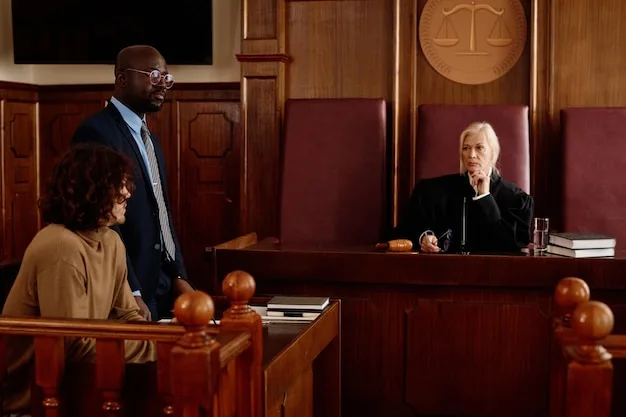Introduction to Direct Fairways Court Case Timeline
Let’s face it—business court cases are never fun, but some get more attention than others. The Direct Fairways court case became a hot topic for both legal experts and everyday people. Why? Because it’s a clear example of what can happen when allegations, poor practices, and legal systems collide. In this article, we’re breaking down every step of the timeline, so you get the full picture without needing to dig through endless legal documents.
What Is Direct Fairways?
Direct Fairways was a marketing firm that specialized in creating promotional materials—particularly golf course advertising. They worked with small businesses and golf courses across the U.S. Sounds innocent enough, right? But that’s where things start to twist.
Why the Court Case Matters
You might wonder, “Why should I care about this?” Well, the Direct Fairways case became a warning sign to other marketing agencies and small businesses about legal accountability and ethical business practices. It also raised eyebrows in the world of customer rights and consumer protection.
Background of the Dispute
Origins of the Conflict
It all began with unhappy customers. Several small businesses alleged that Direct Fairways Lawsuit used misleading sales tactics. They claimed promises were made that were never kept, such as inflated advertising exposure, overcharged fees, and confusing contracts.
Key Parties Involved
Direct Fairways LLC
Multiple Small Business Owners
The Better Business Bureau (BBB)
Federal Trade Commission (FTC)
These players shaped the drama that would unfold over several years.
Nature of the Allegations
Accusations included:
Deceptive sales practices
Unauthorized billing
Breach of contract
Failure to deliver promised services
These were not just minor slip-ups—they had potential legal consequences.
Related Article: Direct Fairways Lawsuit
Timeline of the Legal Battle
Early Investigations Begin (2018)
By mid-2018, the BBB started receiving numerous complaints. Consumer protection groups started paying closer attention. While there wasn’t an official legal action yet, the storm was brewing.
Initial Complaints Filed (2019)
In early 2019, a group of business owners filed a formal complaint. Some attempted to resolve issues through arbitration or small claims court. Media outlets began picking up the story.
Regulatory Involvement (2020)
The FTC stepped in during late 2020, launching a probe into Direct Fairways’ business practices. This marked a serious shift from civil complaints to federal investigation.
Lawsuit Officially Filed (2021)
In early 2021, a civil lawsuit was officially filed in a U.S. District Court. Plaintiffs alleged false advertising, breach of contract, and deceptive trade practices.
Pre-Trial Motions and Discovery (2021-2022)
For over a year, lawyers battled it out behind the scenes. Documents were requested, witnesses prepped, and depositions taken. The court had its hands full with discovery motions.
Court Hearings and Media Coverage (2022)
The public got its first taste of the legal action in mid-2022. Journalists started attending hearings. The judge allowed select transcripts to be released to the media. That’s when things got real.
Major Developments and Testimonies (2023)
In 2023, several former employees of Direct Fairways testified. Some backed up the allegations. Internal emails revealed concerns about compliance and customer satisfaction that were ignored by upper management.
Final Rulings and Verdict (2024)
By mid-2024, the court delivered its ruling. The judgment went in favor of the plaintiffs. Direct Fairways was ordered to pay restitution, fines, and restructure their business model—or cease operations entirely.
Impact of the Court Case
Consequences for Direct Fairways
The company faced major penalties. Aside from financial damages, their business license was temporarily suspended. Several executives resigned.
Industry Reactions
Marketing agencies across the U.S. started re-evaluating their practices. This case set a new benchmark for transparency and legal accountability in marketing.
Public and Client Trust Issues
Even loyal clients began distancing themselves from the brand. Trust was shattered, and rebuilding it proved nearly impossible.
Legal Analysis
What the Law Says
According to the Federal Trade Commission Act, companies cannot engage in deceptive or unfair trade practices. Direct Fairways' actions, as outlined in court, clearly violated this.
Precedents and Comparisons
The case was often compared to past marketing scandals involving telemarketing and deceptive online ads. It wasn't unique, but the scale and exposure were significant.
Expert Legal Opinions
Lawyers argued the case could've been avoided with better compliance and transparency. The legal takeaway? Always have airtight contracts and honest representations.
Lessons Learned
Transparency in Business
Clients need to know exactly what they're buying. That means no vague promises or hidden fees.
Legal Compliance is Non-Negotiable
Small mistakes might slip through once or twice, but repeat offenses? That’s when regulators take notice.
Reputation Management Matters
One bad review is a blip. A court case? That’s a scar. Businesses need to protect their reputations like gold.
Conclusion
The Direct Fairways court case serves as a modern business cautionary tale. From the first complaint to the final judgment, it was a rollercoaster of legal twists and corporate fallout. But more than that, it’s a reminder that ethics in business aren’t optional—they’re essential. Whether you're a small business owner, a marketing pro, or just a curious reader, there’s something to learn from every step in this case’s timeline.
FAQs
What was Direct Fairways accused of?
They were accused of deceptive marketing, unauthorized billing, and failing to deliver on advertising promises.
When did the court case begin?
The official lawsuit was filed in 2021, but complaints and investigations started as early as 2018.
What was the final outcome?
The court ruled against Direct Fairways in 2024, ordering financial restitution and operational changes.
How did this affect their customers?
Many customers were left dissatisfied and skeptical. Some received compensation, while others were part of a class-action settlement.
Is Direct Fairways still in business?
As of the final ruling, they faced serious operational restrictions. While they may still exist, their presence and practices have drastically changed.





